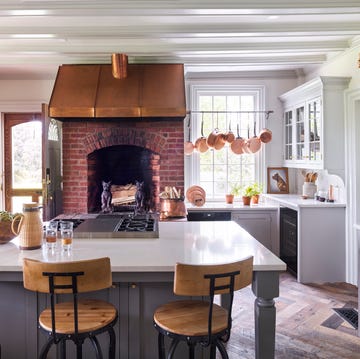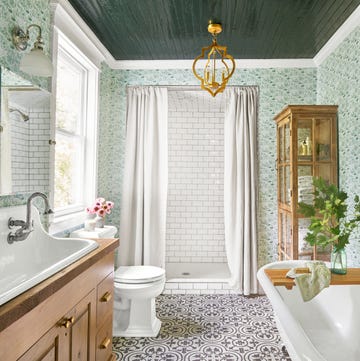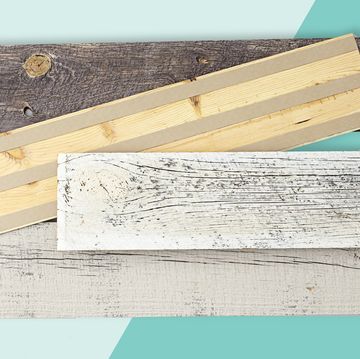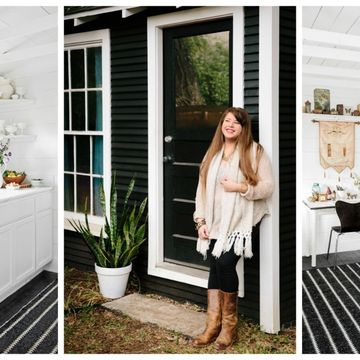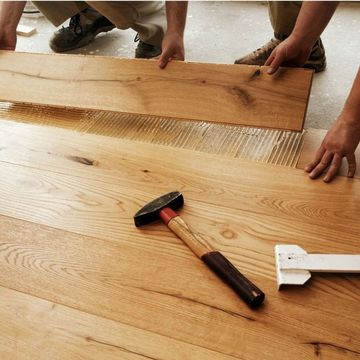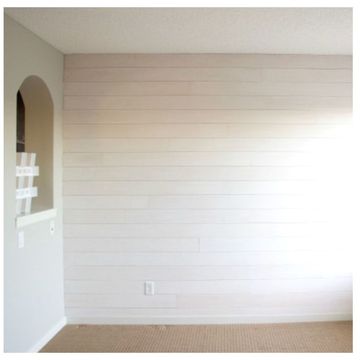We'd been watching the water rise all afternoon. Our pond, normally several inches lower than the dock behind our house, now covered the dock and the water was creeping up the backyard.
It was 2010. My husband and had been married a total of two months. He was napping when my neighbor called and said they were leaving because our houses were about to flood. I told myself they were overreacting, but I nervously paced to the window every few minutes just to check.
When a disaster is hours away from hitting your house, there's no way to know. If you did know, what would you do? Pack everything you have into your car? Rent a moving van? I personally was in denial even after my husband went outside to talk to neighbors.
More From Country Living

"We have to go," he said.
I packed a suitcase and took it to my car. My next-door neighbor was loading paintings into her car.
"What's going on?" I asked.
"I spoke to the officer," she said, pointing to a police officer who was talking to someone across the street. "He said we will get water in these houses and we need to evacuate."
At that point, I should have believed it but your mind doesn't want to go there. You spend years paying for a house and you rely on it not to fill with flood water. Even after we grabbed a few essentials and left for my parents' home, I couldn't digest what was happening. When we arrived, my mom called my aunt's best friend who has worked closely with FEMA. I explained the situation and asked her what would happen if our house flooded.
"Do you have flood insurance?" she asked.
"We aren't in a flood zone," I said.
We still aren't. It was a 1,000-year flood. That night, 18 inches of water filled our house, which was located in a subdivision close to the Opryland Hotelin Nashville, Tennessee. The water receded fairly quickly, but when we returned, the main entrance to the subdivision was still underwater.
Over the next couple of months, our lives were filled with chaos. First we had to remove everything from our house, including half of the drywall and all of the flooring. Most of our belongings were picked up as trash. Local churches and religious organizations were there from the first day, working side by side with everyone to get items out of the house and provide food and water to those who needed it. I will never forget their kindness.
Family, friends, co-workers, and strangers were kinder than I would ever have imagined. I learned quite a bit about my fellow man and it has changed my perspective on everything.
We rebuilt our house using the disaster money provided by FEMA and our own money. Non-religious charities weren't helpful at all, which surprised me. To this day, I refuse to give to most charities. I instead contribute to GoFundMe campaigns or hand the money to someone directly. Not only does that ensure the money gets to the person, it has a far greater impact than the small amount they'd receive from a charity.
I also learned that when your home is destroyed by a natural disaster, you realize what's important. Nobody died. Nobody fell ill. I still had all of my loved ones and a place to stay while we rebuilt. We spent that summer hanging drywall and buying new furniture. Through the generosity of my husband's ex-father-in-law, our floors were redone as decorative concrete. We were very, very fortunate.
Last weekend was the five-year anniversary of the flood. It was also, ironically, the weekend we finally moved into a new house. As we prepare our old house to go on the market, I feel a strange attachment to the building we worked so hard to reconstruct. I feel as though that home will always belong to us, even long after someone else is living there.




